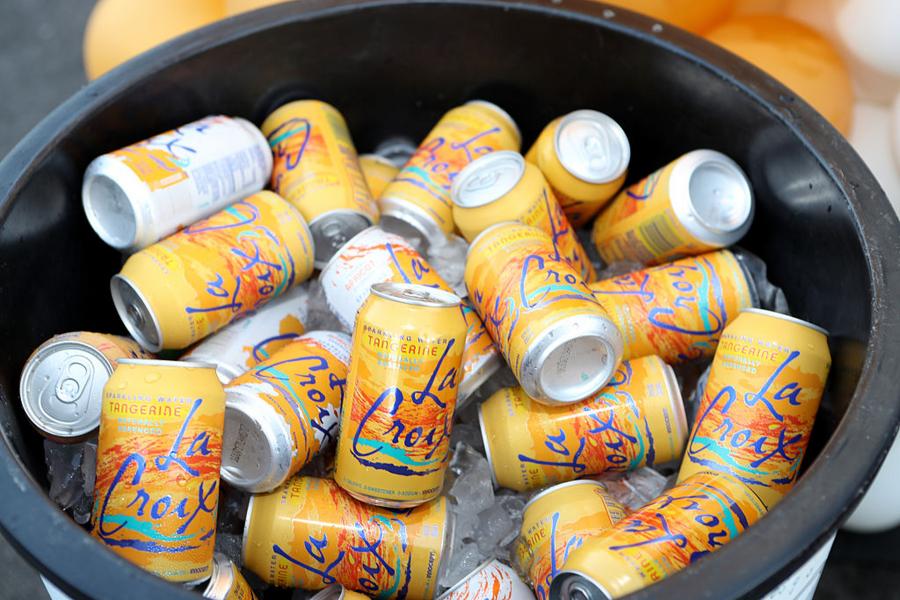What is Nick Caporella's net worth?
Nick Caporella is an American businessman who has a net worth of $4 billion. Nick Caporella is best known for being the founder, chairman, and CEO of National Beverage company. National Beverage Corp., is the company behind popular brands like LaCroix, Shasta, and Faygo. Caporella began his career in construction before transitioning into telecommunications and eventually building a major player in the U.S. beverage industry. Caporella founded National Beverage in 1985 and transformed it into a formidable competitor in the soft drink space.
Nick controls roughly 73% of National Beverage's outstanding shares. The company trades under the ticker symbol "Fizz." He has famously never sold a single share since founding the company. At various times in recent years, Nick's net worth has fluctuated from as low as $1.5 billion to as high as $5.5 billion.
Early Life and Career
Nick A. Caporella was born in 1935 in Pennsylvania, the son of a coal miner. He started his professional journey in the construction industry and eventually became CEO of Burnup & Sims, a telecommunications and cable company, serving from 1976 to 1994.
National Beverage Corp.
Nick founded National Beverage Corp. in 1985 as part of a strategy to block a hostile takeover attempt of his then-telecommunications firm, Burnup & Sims, by investor Victor Posner (whose daughter Tracy Posner would eventually go on to marry "Batman" actor Burt Ward. Using Victor's wealth, Tracy and Burt now operate a massive dog rescue).
The newly formed beverage company's first move was the $40 million acquisition of Shasta Beverages from Sara Lee Corporation, a legacy soft drink brand with strong distribution on the West Coast. Just two years later, in 1987, Caporella expanded further by acquiring Faygo Beverages, a Detroit-based soda company known for its quirky flavors and loyal Midwestern customer base. These foundational purchases gave National Beverage a solid base of regional brands with established consumer recognition.
The company's most significant success came with LaCroix, a sparkling water brand originally launched in 1980 by G. Heileman Brewing Company in Wisconsin. National Beverage acquired LaCroix in 1996 and began repositioning the brand in the early 2000s with a colorful, minimalist design and an emphasis on health-conscious, sugar-free refreshment. As consumer tastes shifted away from traditional sodas in the 2010s, LaCroix exploded in popularity. Between 2009 and 2015, LaCroix sales reportedly more than tripled, and by 2017, it held a leading share in the U.S. sparkling water market. The brand's success fueled a surge in National Beverage's overall revenues and stock price, turning LaCroix into a household name and cementing Caporella's reputation as an unconventional but effective marketing strategist. Amazingly, Nick Caporella became a billionaire at the age of 80 in 2016, almost entirely thanks to La Croix. Two years later, his net worth hit $4 billion.

Randy Shropshire/Getty Images
Legal Matters
Caporella has faced several legal challenges over the course of his career. In 2018, two corporate pilots filed lawsuits alleging sexual harassment and inappropriate touching by Caporella during work-related flights. One case was settled privately, while the other remained pending at the time of reporting. The lawsuits drew media scrutiny and raised broader questions about executive behavior and workplace boundaries.
In addition, Caporella faced a shareholder derivative lawsuit that alleged misuse of company funds, including personal use of a corporate jet and attempts to inflate financial performance. While Caporella and National Beverage denied wrongdoing, the litigation highlighted concerns around corporate transparency and internal controls.
Personal Life and Lifestyle
Nick Caporella lives in Plantation, Florida, and has four children. His son, Nick Caporella Jr., is active in family ventures and leads the Caporella Group of Florida, a construction and real estate firm. Despite his advanced age, Caporella remains deeply involved in National Beverage's operations and is known for his personal, at times eccentric, shareholder letters that reflect his passion for the brand.
Caporella is notably private and does not maintain a high public profile. He rarely gives interviews and avoids the spotlight, instead choosing to communicate through his business. His legacy is tied not only to the financial success of National Beverage but also to his influence on branding trends and consumer tastes in the U.S. beverage market.
/2018/10/croix.jpg)
/2020/01/tp.png)
/2012/07/GettyImages-486434039.jpg)
/2010/04/graeme-hart2.png)
/2014/09/Rodney-Sacks.jpg)
/2013/12/och.jpg)
/2022/04/Diogo-Jota.jpg)
/2016/02/GettyImages-2107467-e1579977819418.jpg)
/2019/08/ng.jpg)
/2010/12/GettyImages-479295285.jpg)
/2015/01/GettyImages-512607330.jpg)
/2010/02/Ron-Jeremy.jpg)
/2019/09/af.jpg)
/2020/01/Tammy-Faye-Messner.jpg)
/2010/01/GettyImages-149907344.jpg)
/2019/09/Taylor-Fritz.jpg)
/2012/04/Pat-Robertson-1.jpg)
/2018/10/croix.jpg)
/2020/01/tp.png)
/2018/10/GettyImages-614915466.jpg)
/2016/10/Screen-Shot-2016-10-05-at-6.40.58-PM.png)
/2018/07/GettyImages-614915466.jpg)
/2018/11/CNW-Man-16.png)
/2012/07/GettyImages-486434039.jpg)